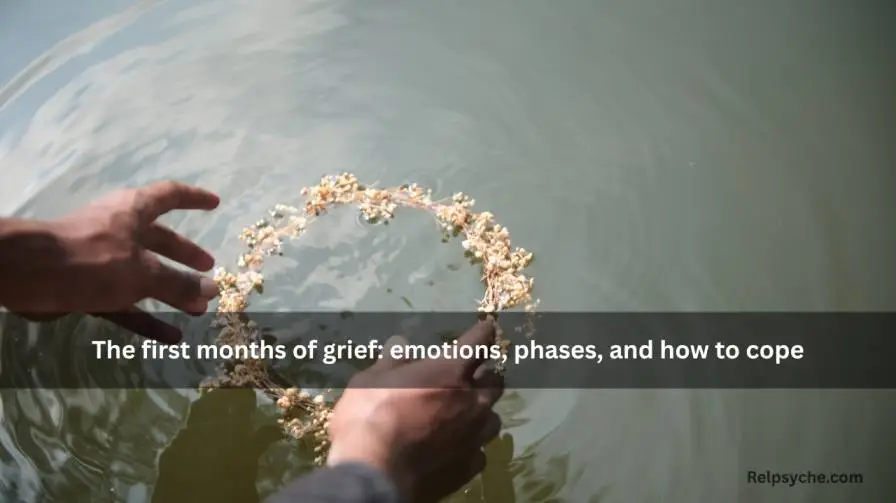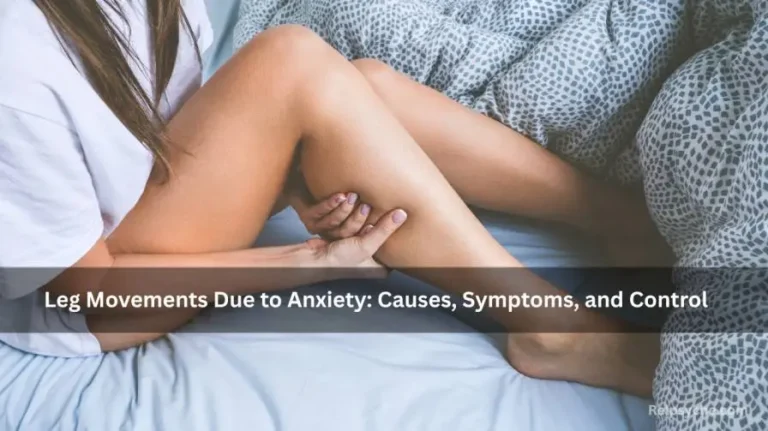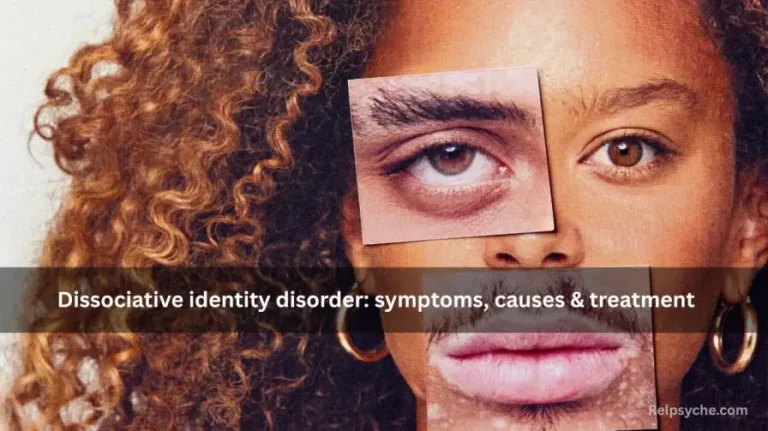The first months of grief: emotions, phases, and how to cope
If you’ve ever experienced a breakup or the loss of a loved one, you’ve experienced moments of profound sadness and anguish. During the first months of grief, you may experience emotions that cause difficulties in your daily activities. Living with grief involves going through phases such as denial, anger, bargaining, depression, and acceptance. This can be applied to any significant loss you may experience.
Although distress is inevitable, there are methods that can help you improve your mood. Seeing a mental health professional, practicing mindfulness, engaging in recreational activities, and establishing new social relationships can help you overcome this process. In this Psychology-Online article, we’ll provide information about the first months of grief: emotions, phases, and how to cope.
Table of Contents
What is grief?
Grief is a psychological process that occurs after the loss of a valued object, situation, or person . While this condition is often associated with the death of a loved one , the truth is that grief can occur at any time in life that involves an internal imbalance. In other words, loss reflects a need to adapt to another reality, causing anguish and sadness.
It’s important for you to know that grief can manifest itself in different ways, producing outcomes that vary from person to person. Below, we’ll present the most common forms of grief:
- Common grief: This involves going through a loss in a healthy way because a person allows themselves to go through the pain without any impediment.
- Chronic grief: From a general perspective, the length of grief is linked to the degree of significance of what was lost. In this sense, the death of a parent can encompass a longer process than the loss of a job a person held for a few months. However, chronic grief occurs when someone is unable to overcome the loss and their life comes to a standstill. According to psychoanalysis, this is called melancholia.
Common emotions in the first months of grief
Although each person perceives their own reality based on their life story, there are some common emotions that can be felt in the first months of grief. In this section, we’ll mention the most important ones:
- Sadness: The thought of no longer being able to share moments with the person or place you’ve lost can trigger uncontrollable crying, with no relief.
- Anxiety: During the first few months, a person may try to do various activities to avoid thinking about the loss.
- Guilt: In some cases, there may be a belief associated with actions that were not taken to avoid grief.
- Disbelief: Disorientation and lack of long-term plans are often obvious signs in the early stages of grief.
Phases and stages of grief
According to author Elizabeth Kübler-Ross [1] , there are five distinct phases that manifest in the grieving process. In the following sections, we will show you the main characteristics:
- Denial: The impact of a loss can be lessened through this defense mechanism. The purpose of denial is to avoid distress for as long as possible, maintaining the illusion that the loss has not occurred.
- Anger: Once a person has begun grieving, feelings of anger toward those around them allow them to dump their pain on others. This type of action is known as projection.
- Negotiation: This intermediate phase addresses behaviors that will allow one to return to a state prior to the loss. During negotiation, the person fantasizes that they can still contact the lost object.
- Depression: This is the absence of desire in life situations. In other words, the depression phase leads to a feeling of being overwhelmed by the grieving person.
- Acceptance: Despite resignation to the loss, a new reality is accepted. This means that a person can regain their happiness even while living with the absence.
How to cope with the first months of grief?
Although it’s impossible to avoid the pain when you lose something significant, there are methods that enable a healthy process. Here’s how to cope during the first months of grief:
- Therapy: Seeing a mental health specialist allows you to talk about the person, place, or object you’ve lost. This can provide relief, as well as help you plan your next steps in life.
- Mindfulness: Being present in a moment of relaxation can help you breathe and lighten the burden of the losses you’ve suffered.
- Engaging in recreational activities: Sports and art can promote the release of dopamine and serotonin, hormones linked to happiness. Likewise, hobbies like writing and theater allow you to express your deepest feelings during grief.
- Establishing new social relationships: This isn’t about replacing the absence of a loved one by incorporating other people into your life, but rather about creating new life projects that make sense.

Conclusion
The first months of grief are often the hardest, filled with emotions that can feel overwhelming and phases that may seem endless. Sadness, anxiety, guilt, and disbelief are natural responses when facing a loss, and going through denial, anger, bargaining, depression, and acceptance is part of the healing journey. While grief is painful, it is also a reminder of the love and connection we once shared.
Coping with grief takes patience, compassion, and time. Therapy, mindfulness, hobbies, and building new social connections can support you in regaining balance and meaning in life. Remember, there is no right or wrong way to grieve—your process is unique. With support and self-care, healing is possible, and you can create a new chapter that honors both your loss and your growth.
Ready to take the next step in your personal growth? Explore expert services — from therapy to life coaching — available on Fiverr.
If you want to read more articles similar to The first months of grief: emotions, phases, and how to cope, You Need to Know we recommend that you enter our Psychology category.
FAQs
1. How long do the first months of grief usually last?
The early stages of grief can last from a few weeks to several months. However, there is no fixed timeline because each person’s experience with grief is unique. Some people may begin to feel lighter within months, while others may take longer depending on the depth of their loss and the support system they have. The key is not to compare your process to others.
2. Is it normal to feel angry during grief?
Yes, anger is a common phase of grief. It often reflects frustration or pain that is hard to express in other ways. Recognizing it as part of the process can make it easier to handle. Talking to a trusted person or channeling that energy into physical activity or journaling can help. Over time, this anger usually softens as you move through the healing journey.
3. Can therapy really help with grief?
Absolutely. Therapy provides a safe space to share feelings, understand emotions, and learn healthy ways to cope. It also helps prevent grief from becoming overwhelming or chronic. Many people also find that therapy gives them practical tools to manage triggers, anniversaries, or reminders of the loss. A professional can also help identify whether additional treatment, such as medication, is needed.
4. What if I don’t feel like socializing after a loss?
It’s normal to want time alone in the first months of grief. However, gentle social interaction and new connections can help reduce isolation and bring small moments of comfort. Even brief contact, like a phone call or a walk with a friend, can make a difference. Over time, these interactions can help rebuild a sense of purpose and belonging.
5. How do I know if my grief is becoming unhealthy?
If grief keeps you from daily life for a very long time, causes extreme hopelessness, or leads to harmful behaviors, it may be a sign of complicated grief. Seeking professional help in such cases is very important. Other signs include not being able to accept the loss, feeling emotionally stuck, or struggling to find joy in anything. Early support can make recovery easier and healthier.
References
- Kübler-Ross, E. (2017). On Death and Dying: Relief from Psychological Suffering, Debolsillo.
Literature
- Cabodevilla, I. (2007). Losses and their mourning. Journal of the Annals of the Navarre Health System, 30 (3), 163-176.
- Kübler-Ross, E., Kessler, D. (2005). On Grief and Pain: Finding Meaning in Mourning Through the Five Stages of Loss. New York: Scribner Publishing.

I’m Emma Johnson, a psychologist who loves to write and share ideas.
I enjoy making psychology simple so everyone can understand and use it in daily life.
If you’d like to talk, ask questions, or work together, feel free to reach out.
Let’s learn and grow in the world of psychology together!







